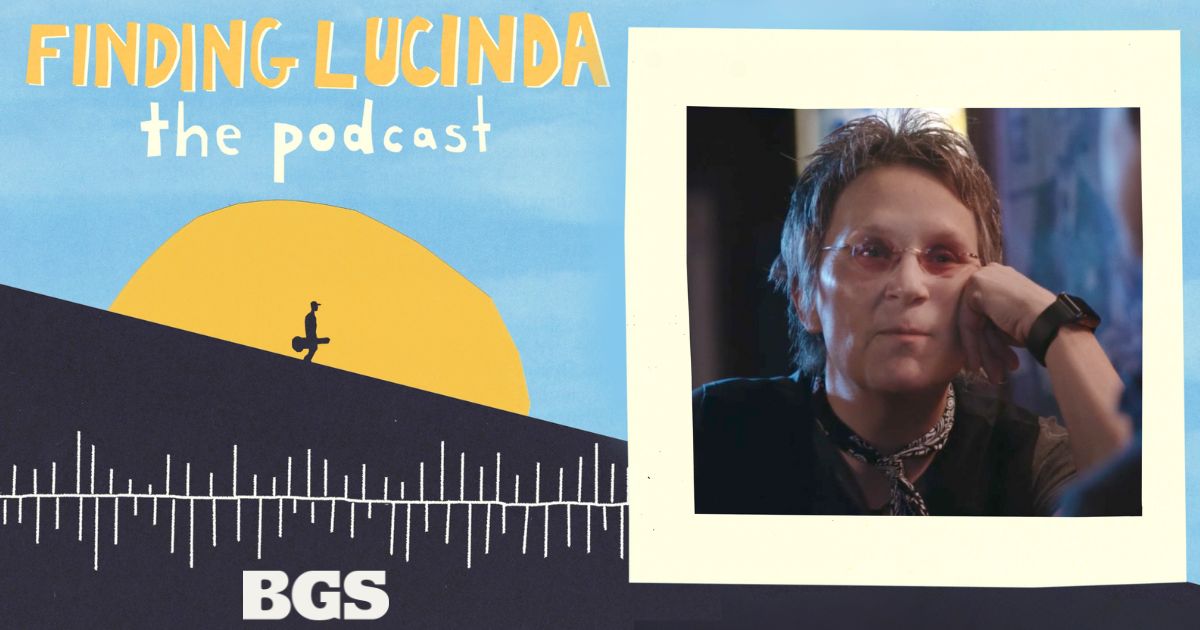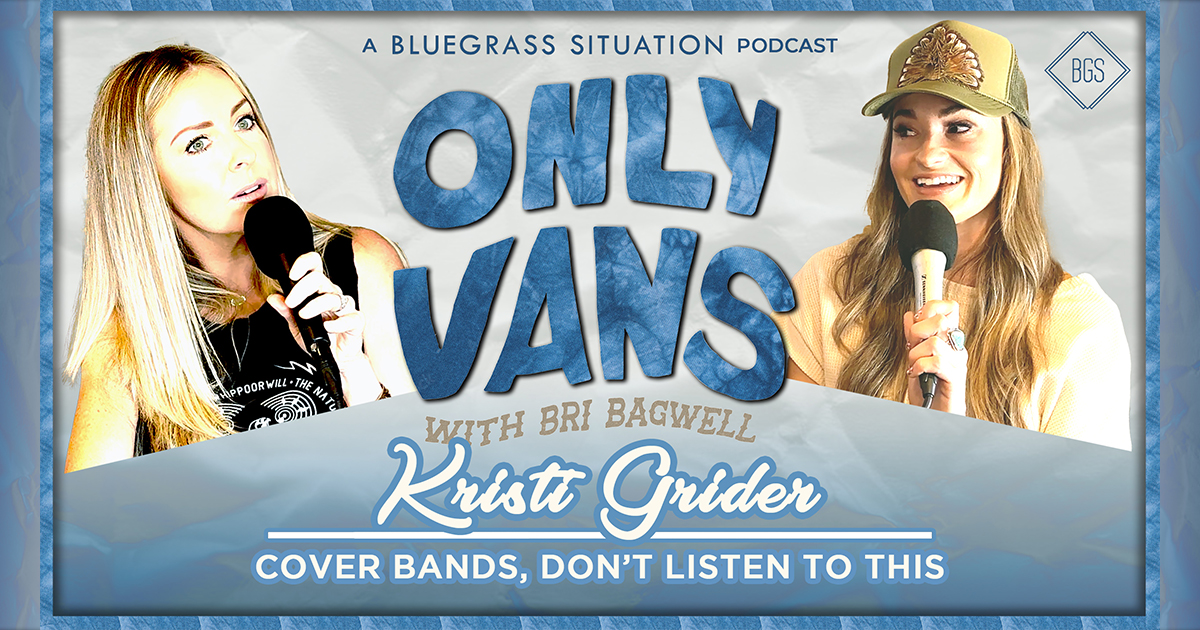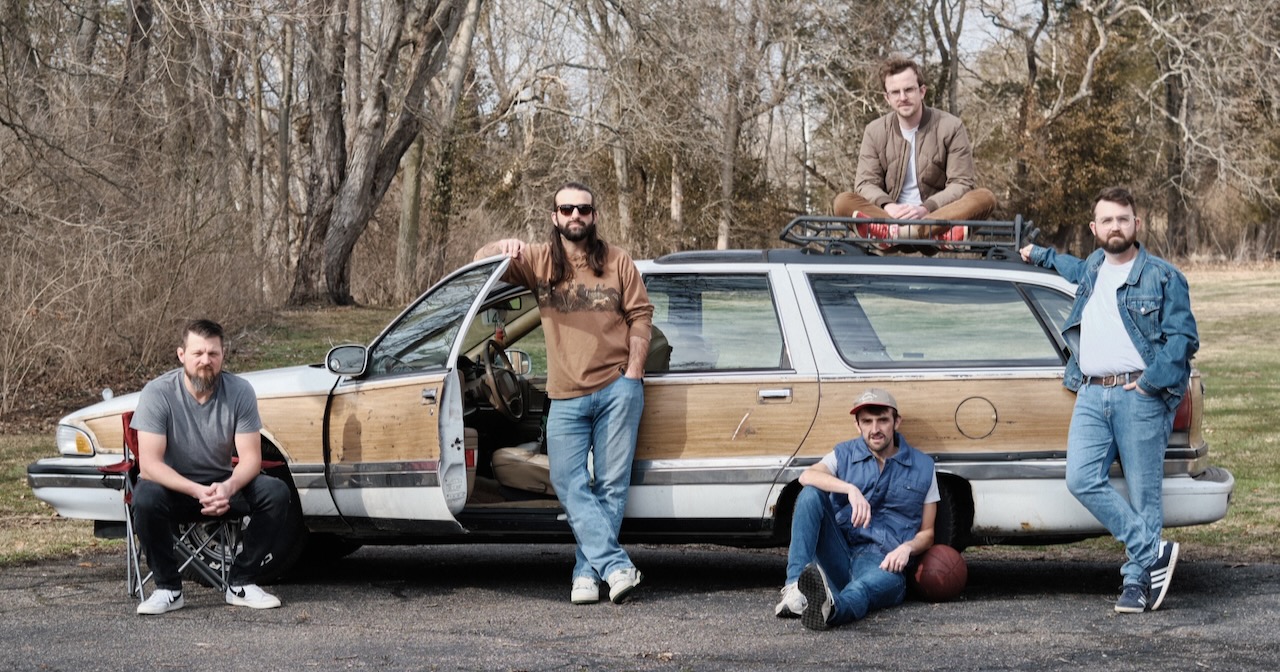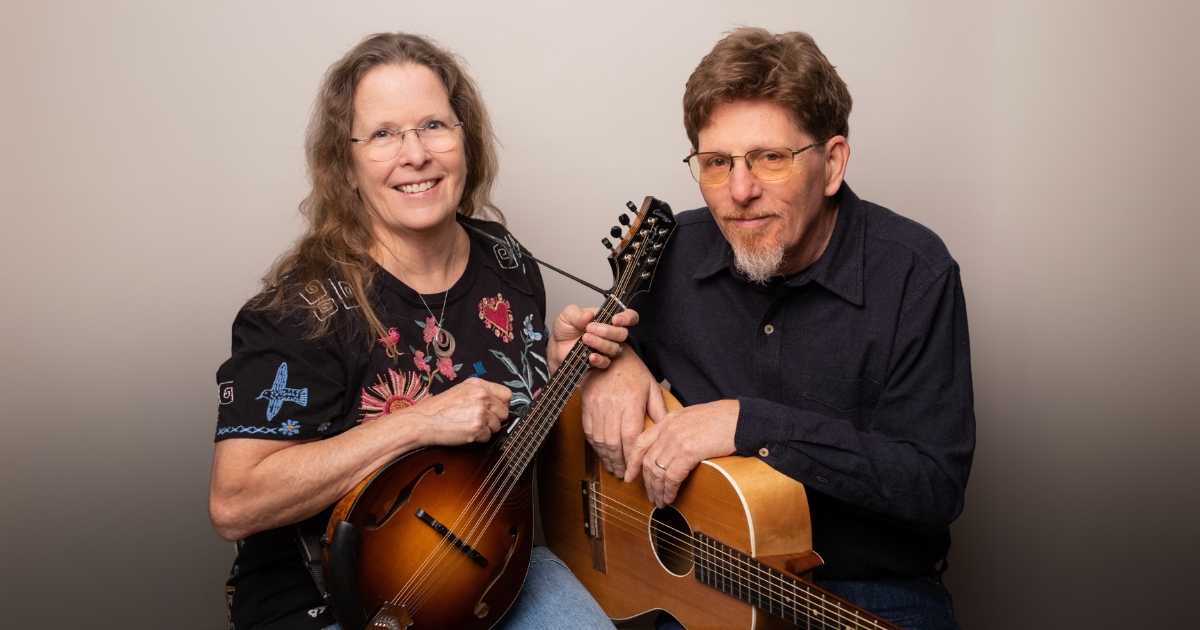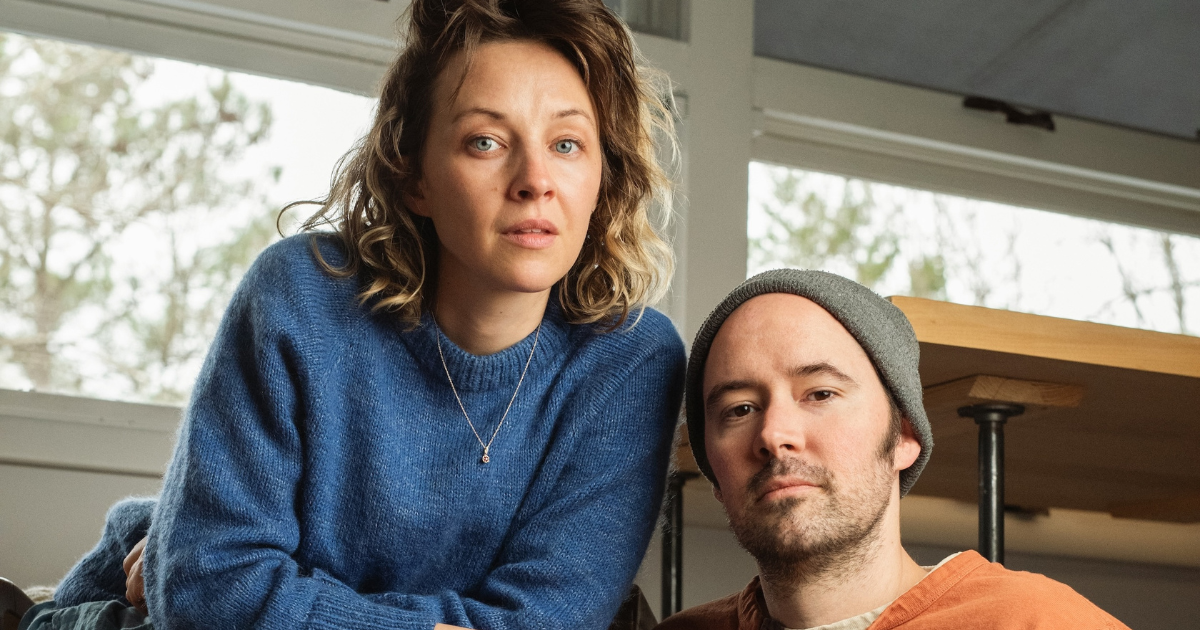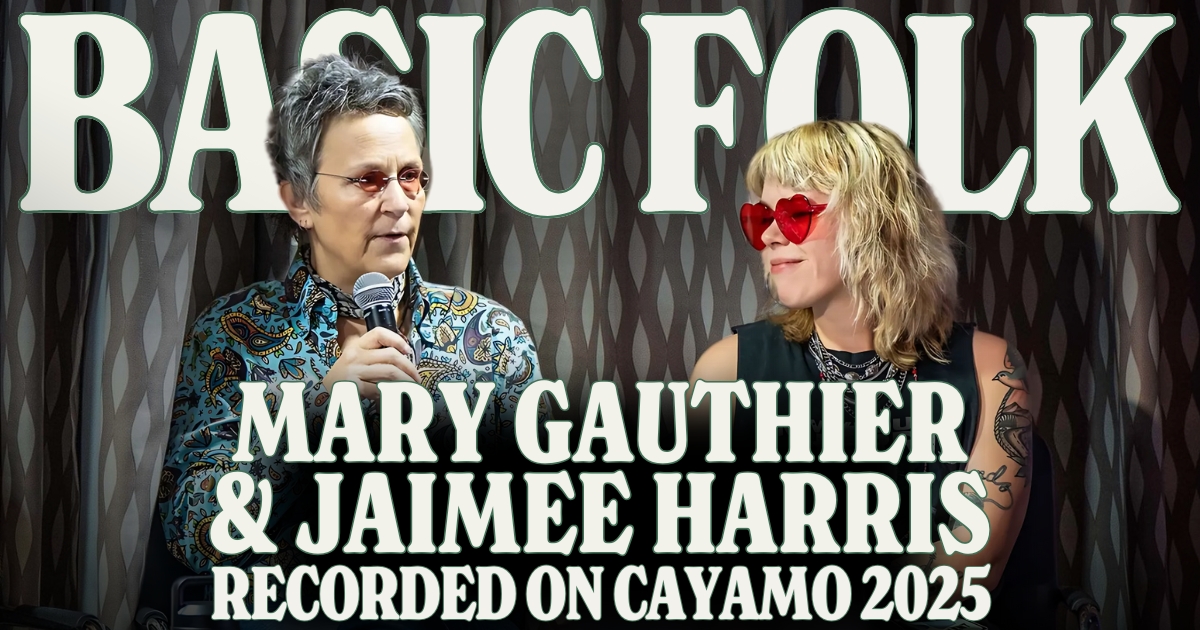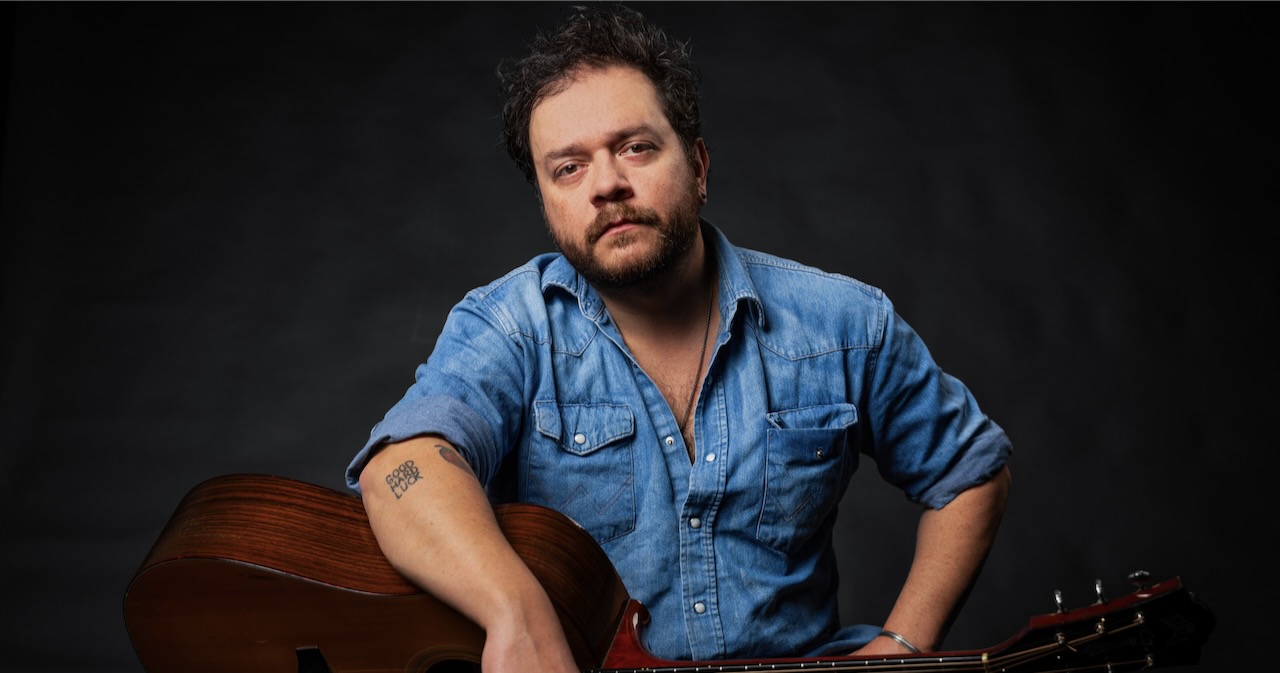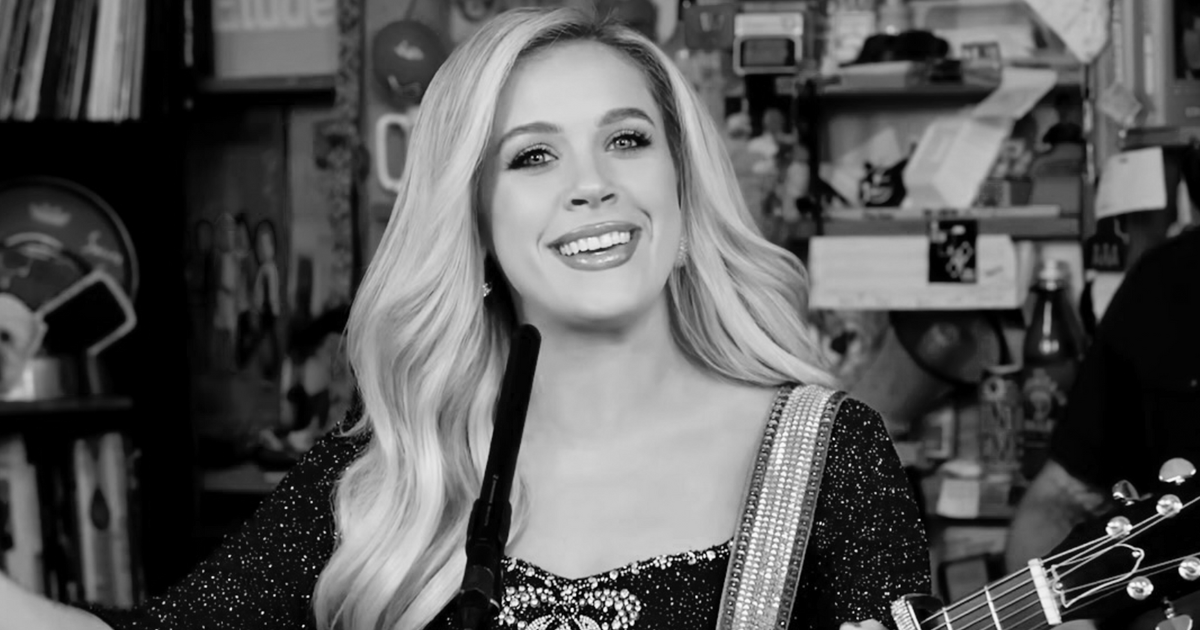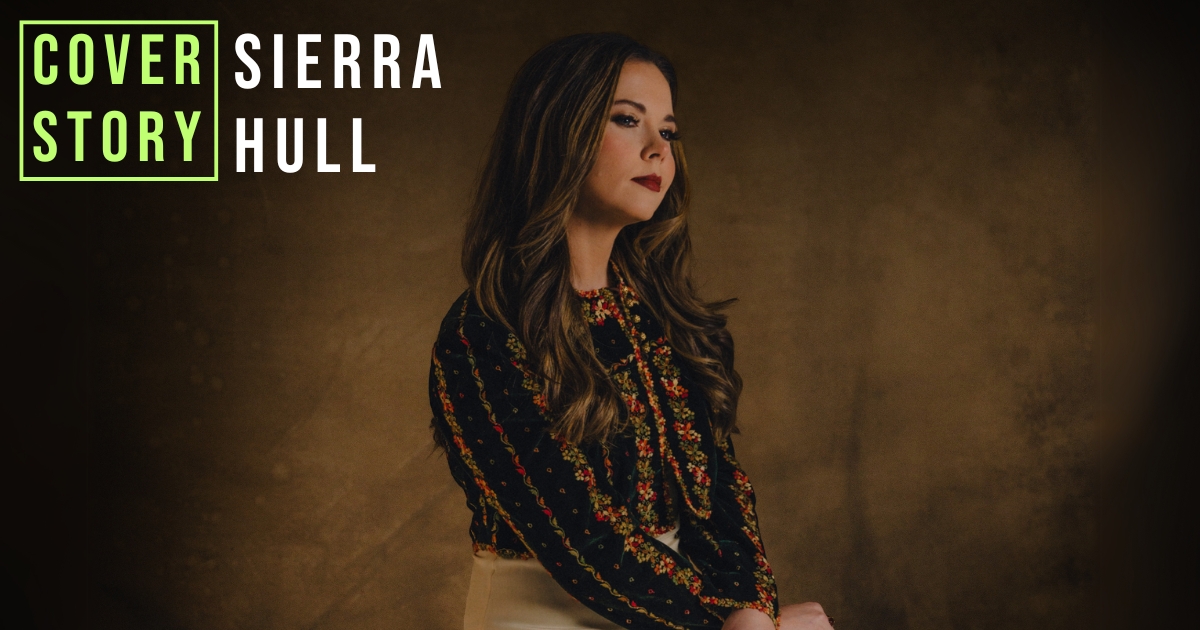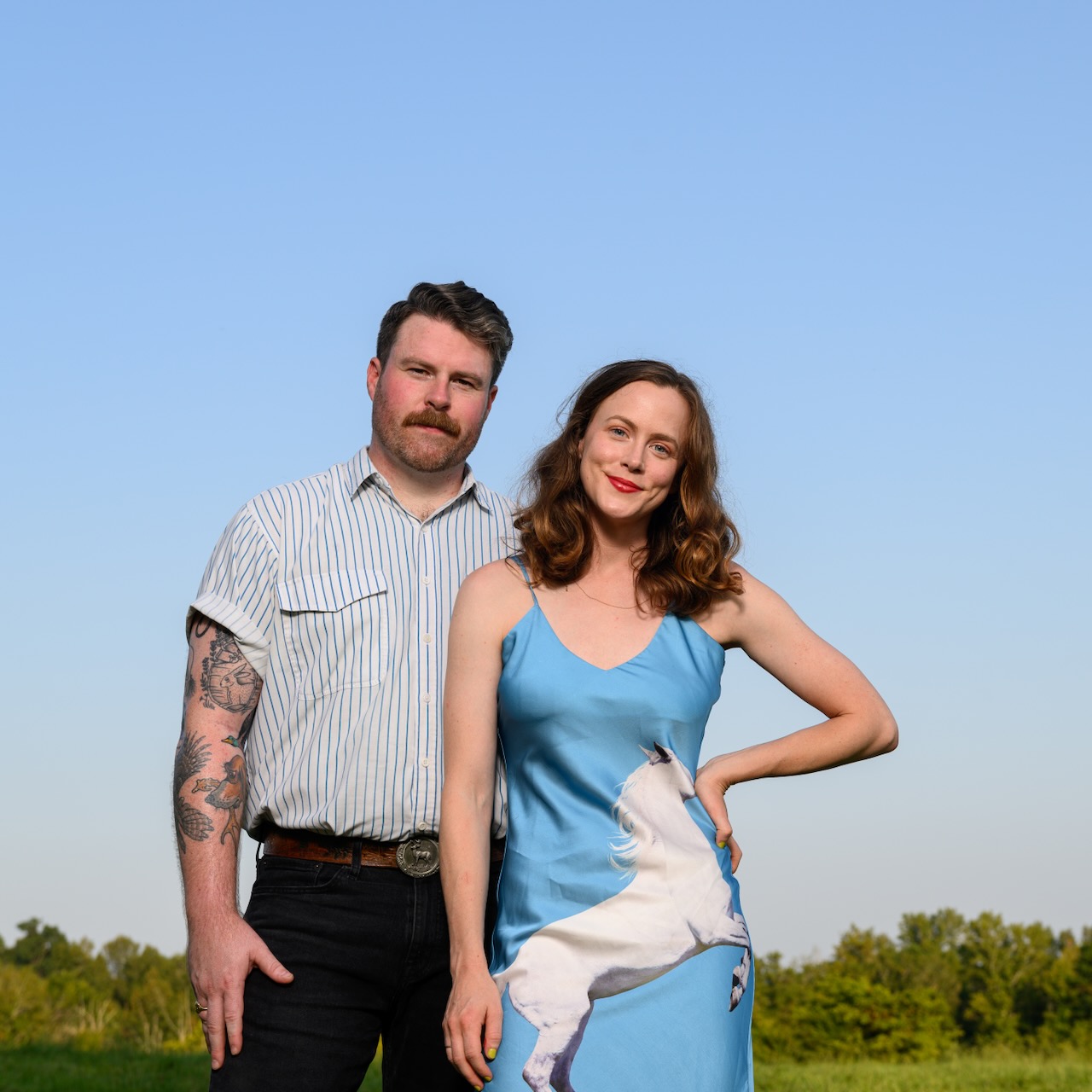Chances are you’ve cultivated a few personal routines to help you navigate the world: one for daily life, one for weekly, monthly, and so on. There’s also likely a handful of individual habits that affect how you choose to go about your routine. The former, at times, can influence the latter, fitting within each other like a pair of nesting dolls, adjacent and similar in their roles.
Then there are rituals. Though these three recurring sets of actions – routines, habits, and rituals – would seem like easily overlapping bedfellows, rituals carry an intrinsic quality the other two lack: mindfulness. Rituals bear a sense of intention like the other two, but it’s often coupled with an element of symbolism or custom. It’s not just a matter of doing something and saying it’s done; there are other connotations or expectations that may influence why doing it matters.
Holding this notion in mind, it’s Rituals that Andrew Marlin and Emily Frantz of North Carolina duo Watchhouse have decided to name their new album. Through its 11 tracks, the married musicians posit an abundance of questions and actions, their contemplations placed in settings that are as clear as a simple back porch and as abstract as a space “through the looking glass,” “beyond this to and fro.” Settings that exist outside of not only any kind of routine, but separate from time and space all together.
Though Watchhouse’s new writings don’t seem to present rituals in their conventional form, the title still feels wholly appropriate. Marlin and Frantz’s reflections, wistful pining, and open-ended ruminations don’t lead to a sense of clear, expected structure that rituals would traditionally provide, but each song is lined with an abundance of intention, mindfulness, and hope for various outcomes. Sometimes these are overtly stated – Oh, I’m dreaming of a life with you in the sun/ And I hope our time together has only just begun… – and sometimes they are dressed in metaphors: Go fire your cannonball, go and fire away/ When the ashes fall we’ll start a brand new day.
There are defined ideas that Watchhouse put forth on the album: identity and awareness, the distinction between patterns and truths, how to develop a positive relationship with change, and what it means to evolve. All the same, while our internal responses to these songs may change over time, the very act of revisiting, replaying, and reconsidering their meanings, and how we are affected by them, can be a form of ritual in its own way.
Amid an extensive tour that will take them all over the U.S. and into Canada through summer and fall, Watchhouse spoke with BGS about their collaborative dynamic, how their individual artistic instincts influence the direction of a song, and the prevalence of duality in the album – as well as in their lives.
It’s been about four years since your last album and eight years since both your lives changed from bandmates to family. Given that Rituals focuses on patterns and the perception of change on our lives, how has the ever-growing longevity of your union in marriage — and all the ways marriage transforms a relationship on its own — changed the way you perceive and interact with the music making process?
Andrew Marlin: When you hit the road and join forces with other people to play music, it’s kind of like stepping outside of the norm and stepping outside of the daily life to go up there and almost take on a role or take on a character in order to get inside the music. You kind of just forget everything that the day often requires of you, because all of a sudden those requirements aren’t there. It’s just the stage and the music and the people that are there rooting for you to go deep, you know?
I think finding that zone with Emily has had its challenges in the past, because we’re so closely tied to each other. We raise kids together and we live together, and so doing all this traveling together and playing music together too, it makes it harder – or made it harder for me at the beginning, I think – to leave the daily routine and expectations behind on stage and just shed all of that and take on that character. It’s one thing to look at your bandmates’ eyes and get a little nod or whatever’s happening during the music. It’s kind of like this understanding of, “I’m not here right now. This is just me playing music.”
Getting to that zone with Emily, now that we’re 16 years into it, has taken a while to get to that point to where it’s an acceptance of all of it, instead of just leaving things behind to get on stage. It’s like we’re carrying all of it with us at all points in time. People that come to see us get a real and honest version of ourselves, trying to go deep in the music but also being completely aware of each other too.
Emily Frantz: I was just thinking about how much things changed in 2020 and 2021, living our mundane day-to-day lives in our house, and the transition back into being on the road again and touring. We’ve obviously been doing that for a few years now since COVID, but that experience made us relearn what the relationship is between our daily life at home and touring and [figuring out] how can they coexist in a healthy way.
Ironically, the album’s opening track, “Shape,” avoids the traditional shape or structure of a song (all verses, no chorus) while the actual narrative of the song embraces ideas that lean into a sense of purgatory and a nebulous state of being — the very opposite of what would help establish a sense of shape, boundaries, identity, direction, patterns, or truths. What were the mental and emotional motivations that inspired you to take the song in this direction?
AM: It’s like establishing the shape or the pattern in order to separate yourself from it. That’s what a lot of those verses are doing, kind of outlining the things that often make me feel like I’m in a box and I’m trying to get outside of that box. The only way to do it – because there’s no real form to it – is to imagine the parameters, imagine the spaces that it ends up kind of confining you in, in order to step outside of those [boxes]. I think that was the intention with “Shape.”
EF: And the way that “Shape” came into its final form, at least final the way it appears on the record, was a lot of the things that you said about it: It didn’t ever really conform and it got rearranged and had things added and taken away from it so many times, a lot more so than other songs. But it always did feel like the backbone of this record in a lot of ways, which is why it felt really right as the opening track of this record.
AM: If there was a shape to define that song, I’d say it’s a spiral.
How have you fit rituals into your lives and have they helped you maintain a sense of stable continuity as a family and as musicians?
AM: I feel like since having kids, the day has taken so much more form. Because I think that, and Emily [is] really brilliant about this, giving structure to the day is super helpful for them. So that they don’t have to wonder what’s happening, so that they can really pay attention to what is happening. I’ve watched both of our kids blossom in that environment. Emily’s really good about helping to create that and make sure we stick to it. Carrying that on the road has been really helpful, too and something that I didn’t realize I was going to benefit very much from. Because I definitely, when left to my own devices, am like a sheet left out to dry – just flapping in the wind. To have a little bit of structure to the day, and have to enter into these mental zones with the kiddos, has added a lot of mental structure to my existence. I think that’s the biggest thing for me.
And within that, it’s about realizing what the day actually requires of me, instead of what I imagined today to be expecting of me. Finding those real anchors and a little more gravity to the things I’m working on have helped me shed old expectations of myself and what I think I’m supposed to be doing. I think that’s what led us to be okay with changing the band name and changing up some of the sounds and approaching this thing we’ve been doing for a long time in a whole new way.
EF: I think the thing that we are [focusing on] 16 years in is finding where the balance is between freedom and artistic expression, and also just daily life and figuring out how to have those two things like coexist and make each other better and not be in a constant sort of push and pull.
The first verse in “Beyond Meaning” is intriguing. The statement of your “gentle” disposition is nice, but its seemingly conditional nature gives pause — particularly when considering that life is noisy and out of our control more often than not. What is it that you’re trying to say about your own identity and awareness of how you cope with the noise and bustle of everyday living?
AM: I feel like what I was getting at is to view it as though it’s external noise. But it’s actually internal noise. That’s often the thing that keeps me from my peace and keeps me from being gentle. It’s my own defenses and my own self-consciousness that end up creating all of this noise. It paints the external noise in a negative light. When I can control that and remember to keep my own defenses at bay and be open and actually present, the idea that maybe this external noise is not a malicious one keeps me gentle and then often what comes from that is a gentle interaction. So it’s more about controlling the internal noise in order to actually experience the external factors.
Out of the 11 songs on the album, Emily is the primary vocalist only for “Firelight.” Why was Emily the right fit to sing the story of this one song? And more broadly, what went into your shared thought process on when, and for how long, you two would sing together? Is it a purely harmony and arrangement-based decision, or do the emotions of a song influence how each vocal arrangement is structured?
EF: A lot of times it can be pretty cut and dry. If we’re deciding who should sing lead on a song, it might just have to do with the range or the key, where we think it sounds good. Sometimes that plays into it maybe even more than the lyrics or the subject matter. With Andrew doing the songwriting, he’s always been more of the primary lead vocalist. Oftentimes, by the time we’re arranging a tune and finding out how we want to present it, it’s very cemented in his voice. But then a lot of times, there will be tunes that we’re struggling with and we’re not quite finding it. By switching out who’s singing, it reframes the whole song and allows us to not just change the lead vocalist, but to find a whole different zone for the song in terms of what we hear and how it gets arranged and recorded. That was the case with “Firelight.” We had so many different versions of that song over the years leading up to recording – different time signatures, different instrumentation – and that was one of the last ones that came together for this album. Most of it got done after the initial tracking session because we were searching on it for a long time and I think I like it more and more the longer I sit with it, the more I hear it.
AM: Often people do want to know why Emily’s not singing more tunes or why the roles are what they are. But I think it’s really important to shine a little light on what Emily does behind the scenes when she’s not singing. The way she plays rhythm and plays violin or whatever instrument she’s on, it ends up being this anchor for everyone in the band. The way that offers complete structure to what we’re doing and allows everything else to sway around that a little bit, I feel like even when she’s not singing, her musical voice is such a strong presence in the music. I’ve heard her say this before, like when she’s playing violin, she’d rather not sing lead because it’s almost like having to sing with two voices. That became part of the structure of what we’ve been doing all along, not just with the lead vocal. The feel of the song and the rhythm and the chord structure and the flow of it all often is hinged on what Emily ends up doing. I think that’s just as important as her taking a lead vocal.
EF: I’ve really, over the years of us playing music together, come around to enjoying singing lead when we find the song that feels good in my range. But for the most part, I’d rather be singing harmony to Andrew and that definitely brings me just as much, if not more, fulfillment than singing lead on a song.
“Endless Highway (Pt. 1)” and “Sway / Endless Highway (Pt. 2)” leave a much heavier state of reflection than that of “Patterns,” the song you chose as the album’s finale. Were the lighter tone of the music and the lyrics a driving factor for why these last three songs are in this order? Did you want to avoid an ending that leaves the listener with a more uncertain emotional state?
AM: I’ll start off by saying Ryan Gustafson, who produced this record with us, actually ended up coming up with this track order. Having not listened to it that way and then taking Ryan’s perspective on it, it was like being able to listen to these songs in their entirety for the first time. All of a sudden, I was getting feelings from these recordings that I hadn’t gotten yet.
“Endless Highway (Pt. 1)” is a heavier song and talks about a really traumatic event that Emily and I went through and that long drone at the end of it kind of dances around the dread of that. Then into “Sway,” it’s more of a coming out of that [feeling]. How do we peek our heads out of the hole once we’ve gone down and slowly crawl back out? To finally get into “Endless Highway (Pt. 2),” where it feels like a real revelation and a real triumphant part of the record? So, you get to the top of the mountain on this song. But I do believe that while those revelations come, we get to the top of those mountains, everything’s clear, and there’s so much lightness and clarity around us, we still have to wake up the next morning, make coffee, make breakfast, get kids to school, go and run errands and carry that little mountain of revelation with us everywhere we go.
I think that the heaviness and the profoundness of that idea ends up giving way to these smaller, mundane parts of our life. That’s what “Patterns” feels like to me. It’s an admission that if we can hold on to those little revelations and the clarity they offered us, hopefully it’ll keep us light by offering us that little reminder of hope.
EF: Going back to what Andrew was just saying about having these big events or these heavy, emotional things happen, and then having to go on with our lives, and the push and pull of that – there’s frustration and beauty in it. I love the order of those [last few] tracks, because I feel both the “Endless Highways” and “Sway” are songs that were written in the middle of this album being written and there’s a lot of anguish from a lot of different sources in those songs. And then “Patterns” was the last song that was written for the album before we recorded it, so it feels like it has a certain clarity to it. Going down in the trench and making your way back up, even though it’s still really just posing a lot of the same questions [as the beginning of the album], but from a more settled state of mind.
What truths about yourselves and how you view the world have you discovered and accepted since finishing Rituals? How many of the questions you’ve posed through these songs do you feel you’ve managed to settle on answers for?
AM: I don’t think I would often look closely enough at how I was making a person feel, as much as I would look at the way the person was. I think that’s becoming more of my truth these days, just to trust that showing up open-minded with awareness and consciousness, focused on experiencing rather than projecting, is probably the closest to any truths that have come out of writing these songs and getting to the end of this record. The takeaway is that it’s not like we found answers, necessarily.
EF: It’s all just a pursuit, always.
AM: You know, it’s not always about finding answers. It’s about finding out–
AM/EF: It’s figuring out what the question is.
Photo Credit: Jillian Clark
Explore more of our Artist of the Month coverage here.
